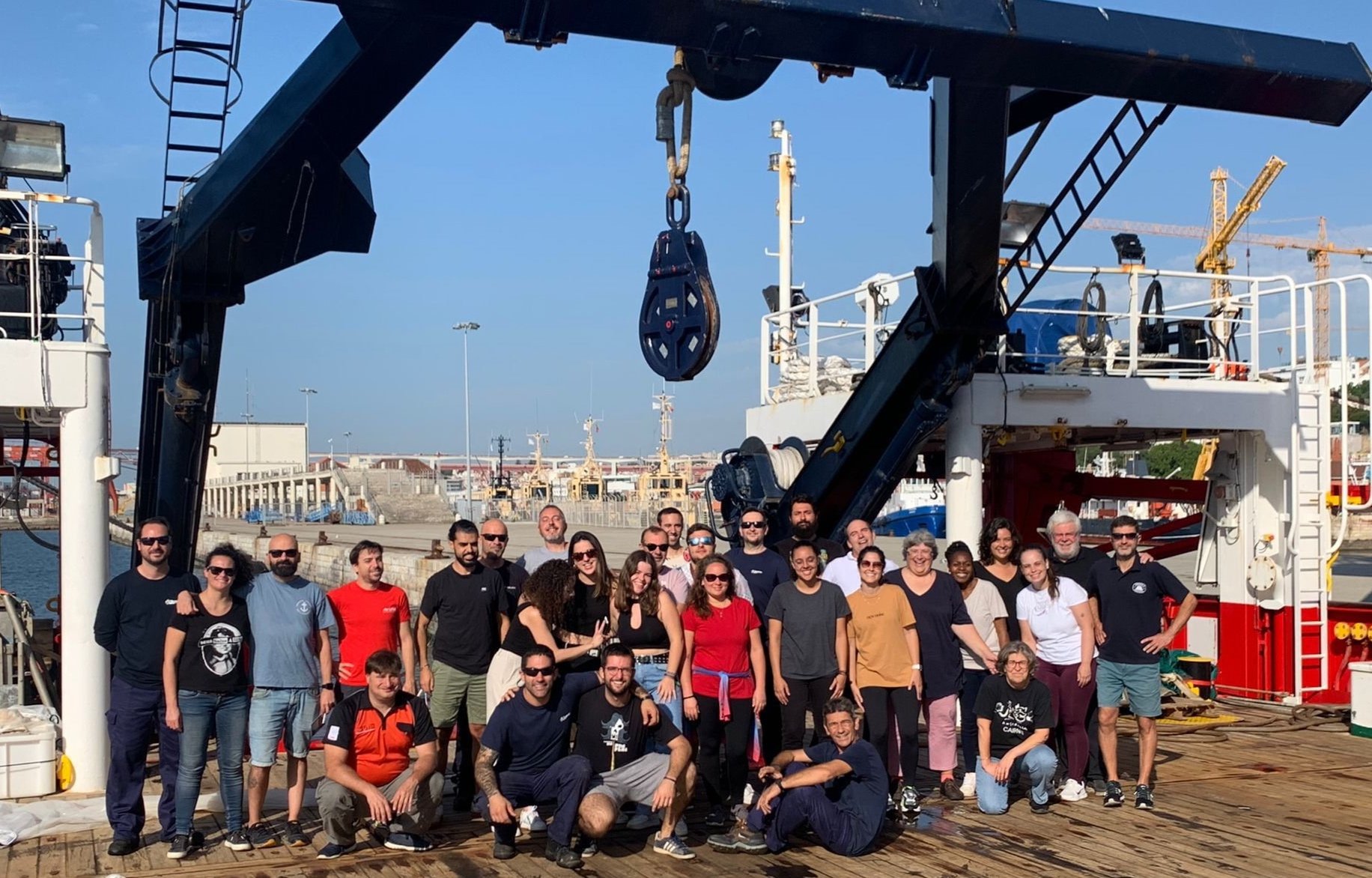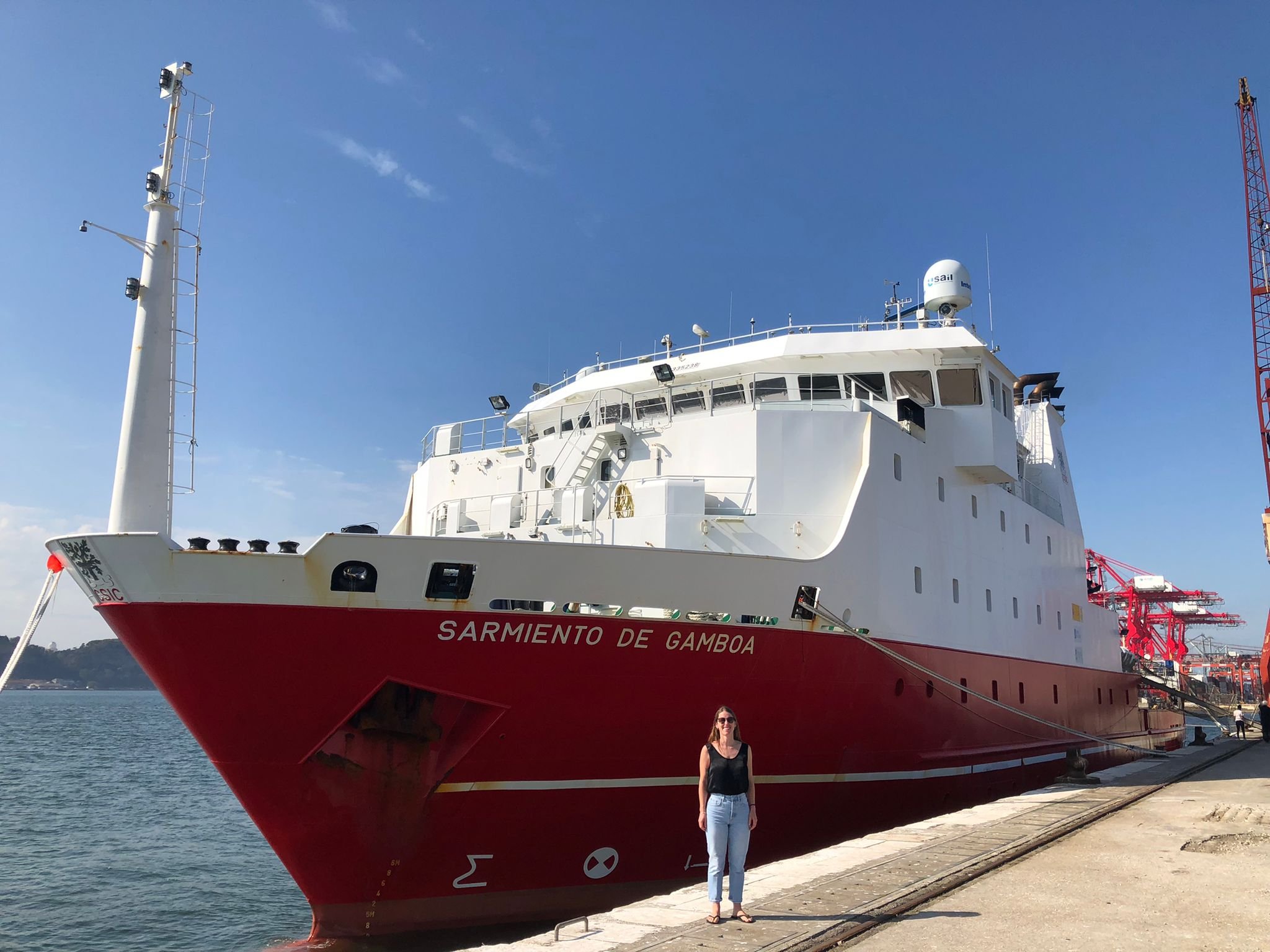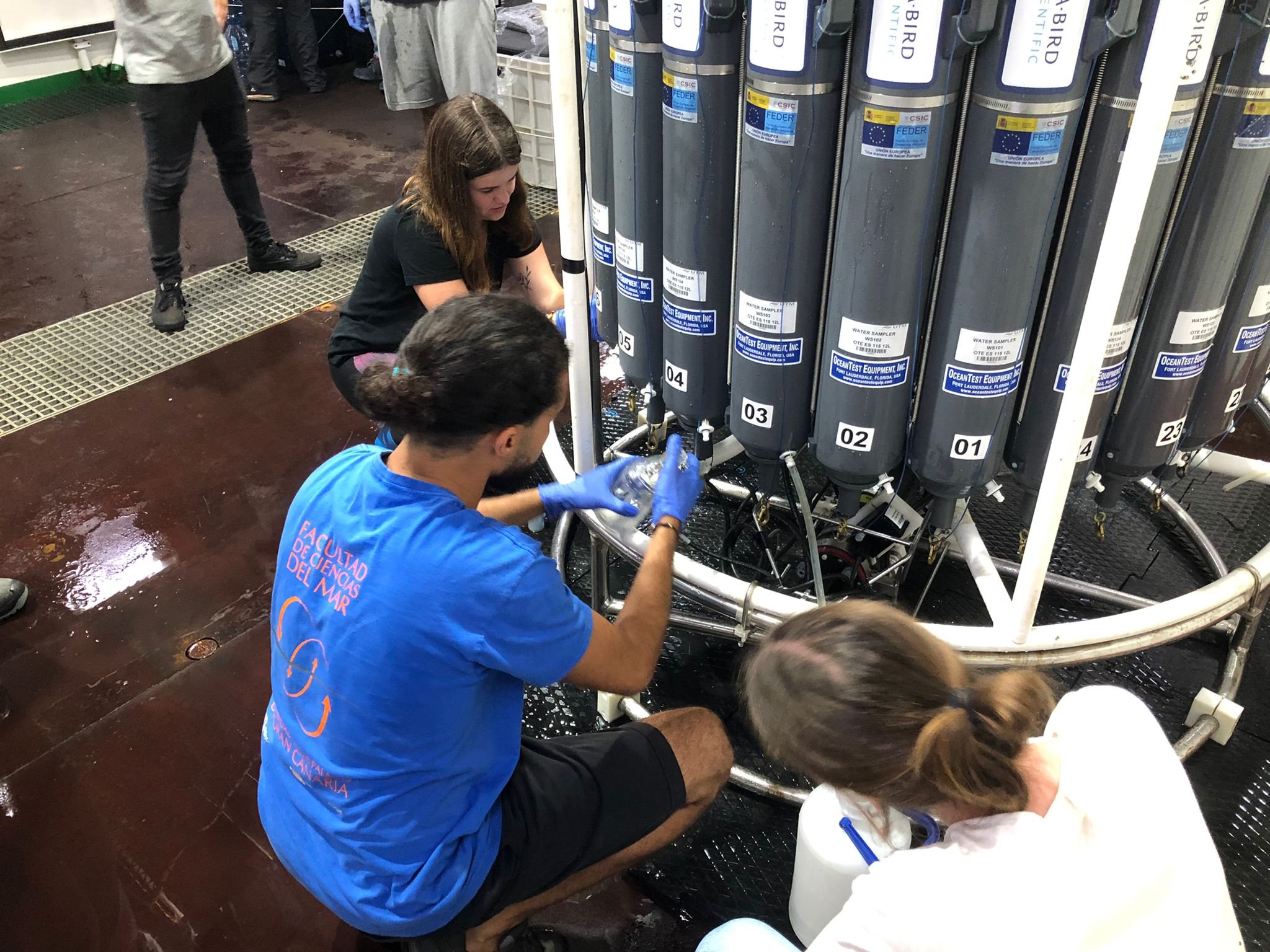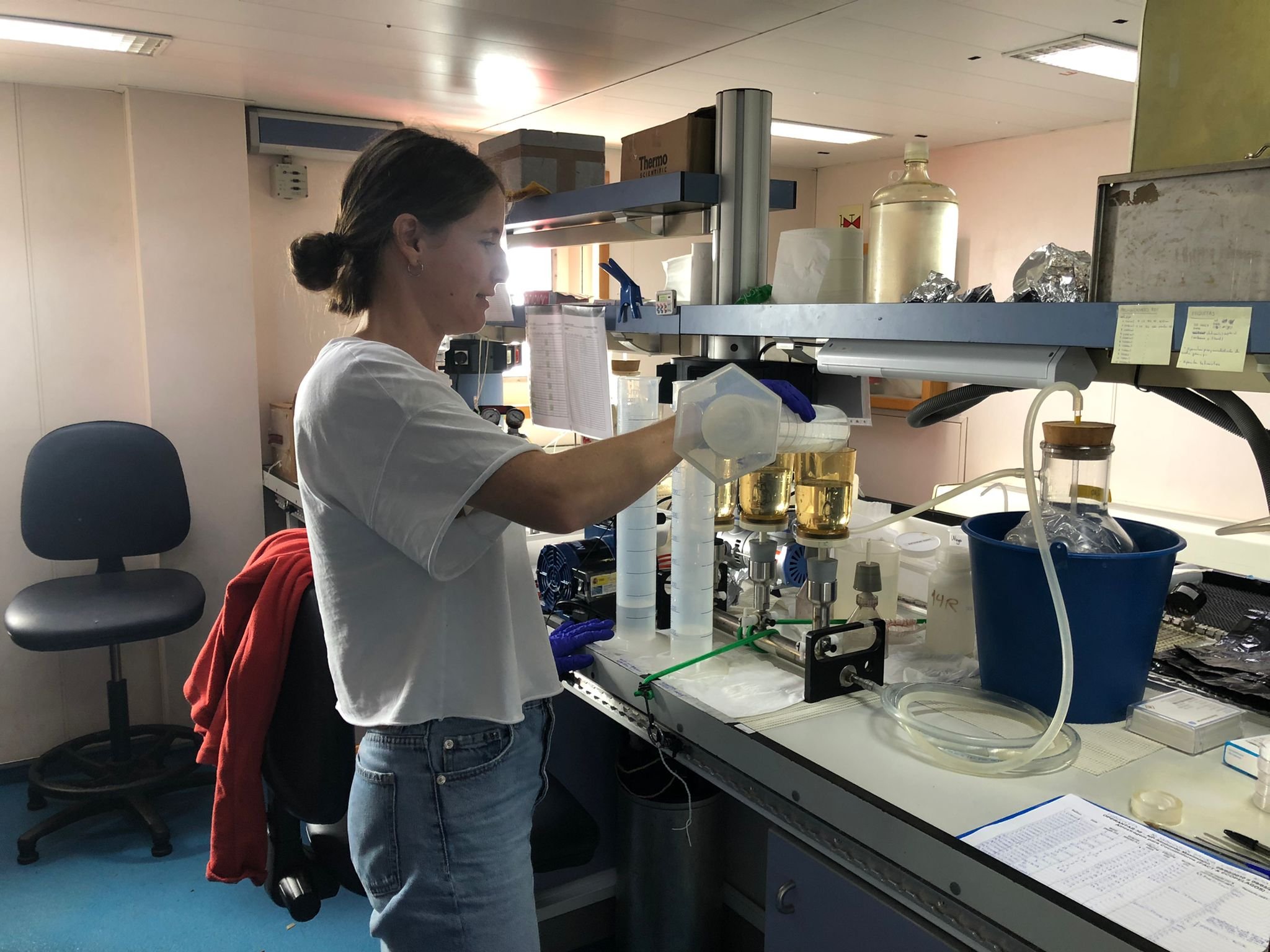Despite being some of the most productive ecosystems in the global ocean, oceanic fronts marked by intensified exchanges between coastal upwelling waters and the open ocean, are still poorly understood. To contribute to fill this gap, the team from the PRIMUS-related project SINES (Climate Change Impact on Ocean Fronts Ecosystems: the case of the Iberian Upwelling System) was recently on board RV Sarmiento de Gamboa (10-20 September 2022) to collect high-resolution data from a broad range of environmental parameters across an upwelling front offshore the SW coast of Portugal.
SINES is led by Marcos Fontela and Fátima Abrantes from CCMAR/IPMA and includes a team of marine researchers from 18 different research laboratories (6 EU countries), aimed at using the in-situ collected parameters in biogeochemical models exploring the present and past ocean conditions in the context of climate change, including the effects of ocean acidification, thermal stratification, and deoxygenation. The cooperation of all involved partners will contribute to develop new calibration biological and biogeochemical proxies to be used as a baseline for the identification, quantification, and validation of modern ecosystem changes with respect to pre-industrial status.
The project SINES team on board of RV Sarmiento de Gamboa.
Young researcher and PRIMUS member Mara Gomes (MARE/FC.ID) was also onboard to collect samples for the study of the concentrations of coccospheres (cells) and coccoliths produced by coccolithophore species in the photic zone, and its associated (paleo)ecological record preserved in seafloor sediments. The goal is to use such (paleo)ecological data as indicators of ocean primary production and biogeochemical processes associated to ocean front ecological dynamics off western Iberia.
Mara Gomes in front of R/V Sarmiento de Gamboa, a multidisciplinary oceanographic research vessel managed by the Marine Technology Unit (UTM) of the CSIC (Vigo-based) which is fully equipped to study all processes related to ocean circulation, including biodiversity and fishery resources.
Coccolithophore communities living in this region will be investigated in relation to the entire phytoplankton community (inferred from photosynthetic pigments) and with biogeochemical, hydrographic, and meteorological parameters measured during the seawater sampling. This collaboration will provide a good opportunity to compare the living coccolithophore communities with their sub-fossil record preserved in the underlying sediments, but also with other important functional phytoplankton groups (e.g., dinoflagellates, diatoms) as well as other planktonic calcifying organisms (e.g., foraminifera) and biomarkers (e.g., alkenones) which will be studied by our SINES scientific partners.
In the context of PRIMUS, the collected data will build on work dealing with net primary production (NPP) processes in the Iberian upwelling system (e.g., Science Case 3 – Lagrangian estimation of NPP in upwelling systems; Science Case 6 – Eutrophication in the Iberian upwelling system; Science Case 7 – Relationship between NPP and fisheries in the Iberian upwelling system) (PRIMUS Science Cases here).
Sub-sampling of seawater from the Niskin bottles of the CTD-rosette sampler (above) and its sub-sequence filtering for the study of coccolithophore communities and of photosynthetic phytoplankton pigments (below). A total of 68 coccolithophore samples were collected at 5 m, 25 m, 50 m, 75/100 m and bottom nepheloid layer (BNL) from 15 stations along a coast-to-ocean transect off Sines and in the Portuguese south coast. For the pigment analysis, a total of 30 samples were additionally collected at 5 m water depth, and from the Deep Chlorophyll Maximum (DCM).



